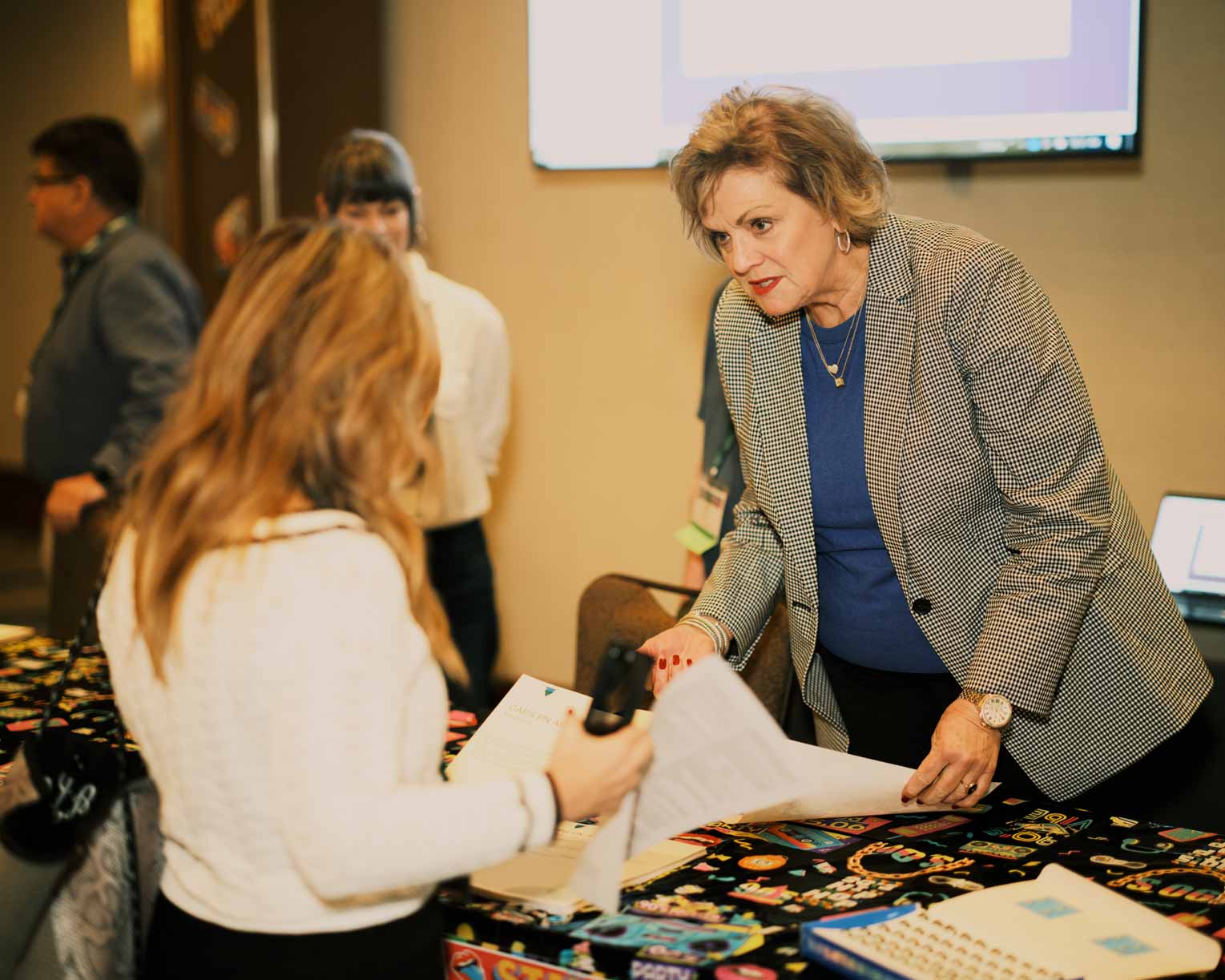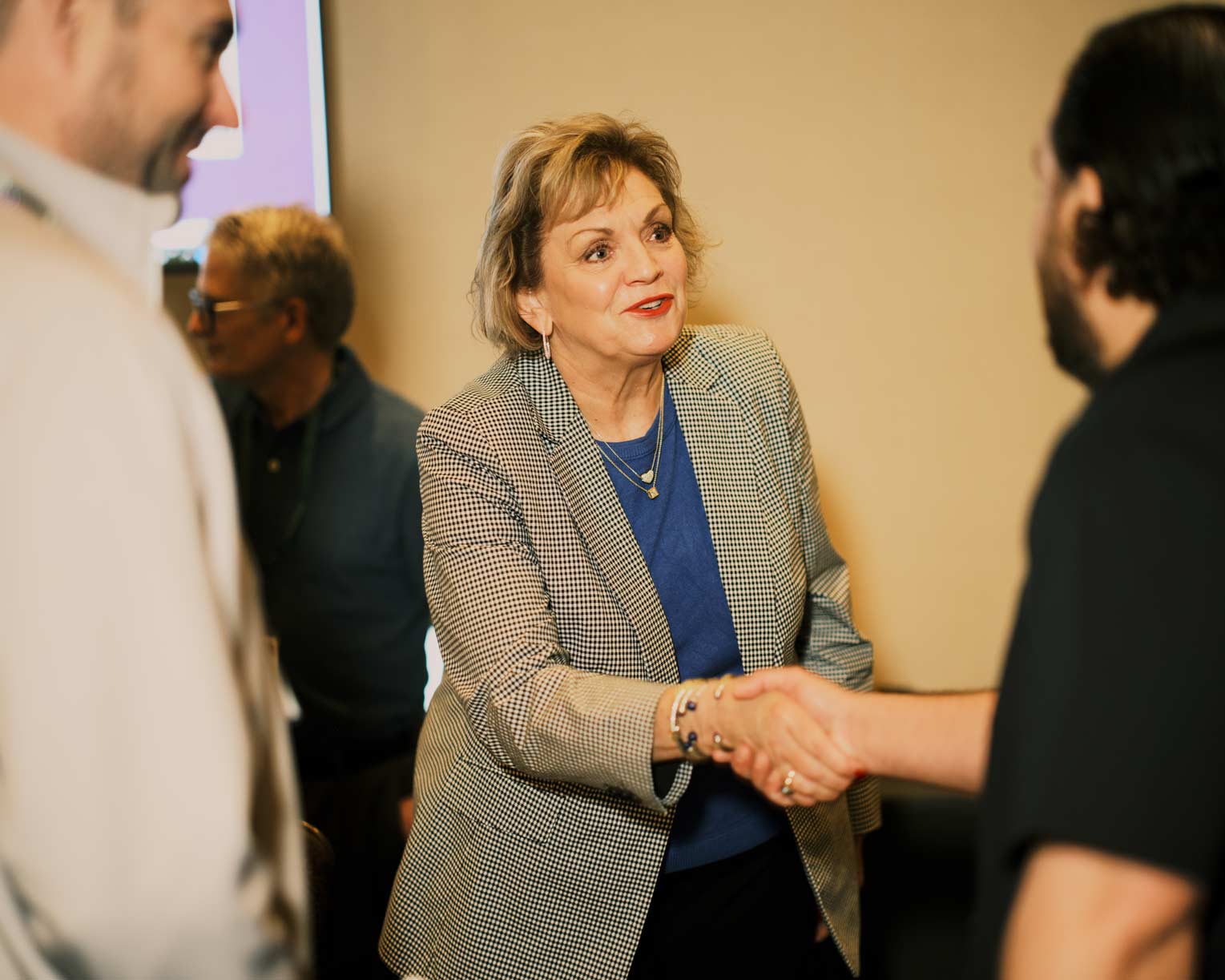No content results match your keyword.
Content
You have successfully logged out.
Not registered yet?
No content results match your keyword.
Content
No product results match your keyword.
Products
Individually compounded
People who need artificial nutrition are often dependent on a custom blend of nutrients. Sharon Durfee has developed a training program for pharmacists for CAPS, a B. Braun subsidiary in the US. Tanja Gorzel compounds solutions every day in the cleanroom at PNS in Melsungen. B. Braun employees like these two make sure patients are reliably and expertly supplied with parenteral nutrition every day.
The B. Braun site in Melsungen has a sixty-three square meter area that few people are allowed to enter. Tanja Gorzel is one of those allowed to go inside. For twenty years, she's been working as a pharmaceutical assistant at B. Braun. Or, more precisely, at the B. Braun plant Professional Nutrition Services (PNS). At PNS, individual nutrition solutions are produced for people who would deteriorate without parenteral nutrition (PN). This means these patients are no longer able to digest food through their gastrointestinal tract.
Tanja Gorzel has been working as a pharmaceutical assistant at B. Braun for twenty years.
Together with twenty-three other colleagues, Tanja produces forty thousand infusion bags every year—half of these are for dialysis patients. The other half are for patients with chronic bowel diseases, short bowel syndrome, metabolic or tumor diseases. Of the about two hundred people supplied by PNS on an ongoing basis, Tanja has been reading some names for quite some time. She sees them almost every day on the prescriptions coming from pharmacies all over Germany. This knowledge is not always easy to bear—after all, the names she recognizes are not those of healthy people. Sometimes, Tanja also sees dates of birth that are too close to the current date. This weighs even more heavily in her thoughts. “Newborns and infants, those ones touch you,” she says. However: “It feels good to help.”
About
0
infusion bags are produced at PNS in Germany every year
Around
0M
infusion bags are produced at CAPS in the US every year
Exactly
0
days a year our patients are cared for
These days, it is no longer a death sentence if you are so sick that you need artificial nutrition. There are, however, many patients who are also very old, very young, very underweight, have a metabolic disorder—here, standard products are not
enough, classic three-chamber bags will not fit the bill. This is where B. Braun comes in, preparing a nutrition solution tailored to the patient, based on the specifications from physicians and pharmacists. As a large industrial company, B. Braun is now one of the few companies that left still offers compounding, with the vast majority of the source products originating from our own facilities.
Tanja has just left the meeting room and goes into the changing room with the light blue lockers. The laundry trolley has fresh garments: white T-shirts, socks, sweaters. Two doors down, into the first gowning room, it is already noticeably colder. Air cleaners are recessed in the ceiling. White walls, blue floor, yellow line. “Stop”, Tanja says. Only people who have been double-disinfected and wearing cleanroom uniforms, a hairnet and shoe covers are allowed to cross this line. The cleanroom in Melsungen is the highest cleanroom grade in which humans are permitted, grade B. This means a gowning area with sequential air locks, special ventilation, a separate lab, numerous material pass-throughs. Nutrient solutions need to be compounded under sterile conditions. Nothing goes in that is not supposed to, and the patient's safety is top priority. Patients sometimes drop in at the Melsungen location. Plant manager Anton Epp will then take them on a tour through the glass visitor corridor. Through the large windows, they can peer into the cleanroom where the bags they need to stay alive are being produced. “Most are surprised, because they didn’t think the process would be so elaborate and complex,” says Epp.
About twelve hours by plane and one ocean away, Sharon Durfee sits at her desk in Fort Collins in the US state of Colorado. And she is all too familiar with the kind of responsibility her colleagues in Melsungen have to shoulder. “Any mistake could result in harm to the patient,” Sharon says. She works as a clinical nutrition support pharmacist at Central Admixture Pharmacy Services (CAPS), a US subsidiary of B. Braun that supplies the entire country with prescription intravenous solutions from its 21 in-house pharmacies. Two other pharmacies produce non-patient specific batch medications for hospital use.

The employees at CAPS are on the job every day. Each year, two million bags are produced and distributed throughout the country. The pharmacies deliver three hundred sixty-five days a year. Every single order received at a CAPS pharmacy is double-checked before it is sent to production. If there is an issue with the prescription, the pharmacists contact the clients, ask about the prescription, identify the problem and correct it—only then is the prescription fed into the electronic system and the nutrition solution produced in the pharmacy cleanrooms. “Our pharmacists are the final safety net before the nutrition solution is made,” says Sharon.
She's been working at CAPS for nearly ten years. Sharon keeps up with the latest research on parenteral nutrition (PN), keeps the directors of the CAPS pharmacies informed.

Over the years, Sharon developed in the education of pharmacists and physicians, nurses, dietitians and physicians. Four one-hour modules designed to make these things clear: what's at stake, what's important, and what a correct prescription looks like, because the orders that come into the CAPS pharmacies may contain inaccuracies that could potentially cost lives. Parenteral nutrition is a low priority in the education of hospital pharmacists. Sometimes they are not very familiar with prescriptions for nutrition solutions. “Parenteral nutrition is a medical procedure where you really have to be on your toes. You need to pay attention,” says Sharon. A study by CAPS and the American Society for Parenteral and Enteral Nutrition (ASPEN), on which Sharon also collaborated, concluded that, out of 38,000 PN orders received, 252 of the orders required an intervention by the CAPS pharmacist.

“If a customer tries to put the wrong components into a parenteral nutrition formula, we let them know. Looking out for patients’ safety is a good feeling.”
In the late seventies, Sharon was working as a hospital pharmacist in Fort Collins, Colorado, in a time when parenteral nutrition was first starting to be used. Even back then, she put a team together to deal with quality control. “I love working with people. If a customer tries to put the wrong components into a parenteral nutrition formula, we let them know. Looking out for more patients’ safety is a good feeling,” she says. Today, Sharon sits on multiple committees of national organizations, including ASPEN. “My profession is very fulfilling. At the end of the day, I’m passing on my knowledge to ensure that our patients are safer,” she says. ASPEN sees it that way, too. Every year, the society gives out the Stanley Serlick Award in recognition of pharmacists who have made an important contribution to improving safety in parenteral nutrition. In 2024, the award went to Sharon.
Back in Melsungen, on the other side of the Atlantic, Tanja Gorzel is in the last gowning room separating her from the cleanroom. Her thoughts are now squarely on the patients. She unpacks her white coveralls, making sure only to touch the inside, slips them on and zips up the zipper. Her brown hair was tucked into a hairnet two gowning rooms back, her head and forehead are covered by a hood extending down to her chest, her feet are in special safety clogs and cleanroom boots. Bit by bit, the last parts of her body disappear behind some kind of protective garment: mask, blue arm sleeves, glasses. Her hands are double-gloved. The first layer is darker than the second so Tanja can immediately tell if a hole has been torn in the glove. She turns back around, waves, then walks over the sticky mat intended to trap any remaining particles and is gone. She is now in the cleanroom. After all, nutrition solutions need to be compounded, bags filled.
Your feedback matters! Participate in our customer survey to help us enhance our website, products and services. Thank you for your support!